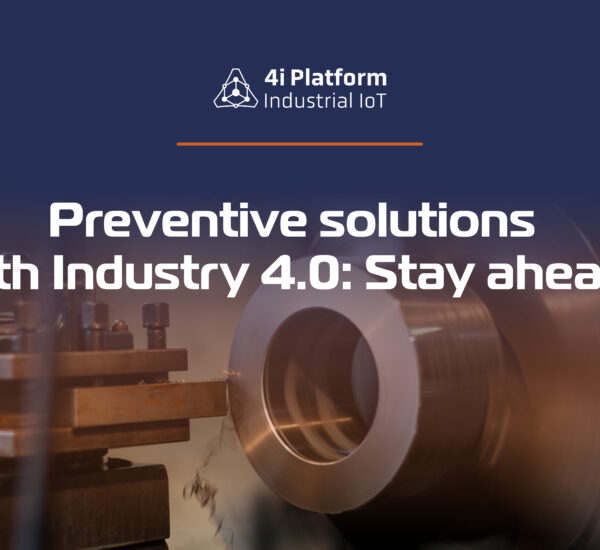Smart factories are now a “thing”. Industrial IoT solutions are creating new manufacturing landscapes through the integration of automated production technologies with smart manufacturing processes.
As a result, every year brings new methods and equipment to the manufacturing industry to help improve operational efficiency. This year-on-year technological maturing has been what brought us from the first industrial revolution up to the fourth industrial revolution.
The great part about it is that each industry is experiencing a revolution in the way it operates, as a result, this has led to a unique set of technologies and methodologies, changing the way we operate.
Industrial IoT Solutions in Manufacturing
The fourth industrial revolution is a golden age in manufacturing and industrial space. So, as businesses start to see the immense impact of IoT on production, they have begun to initiate talks with all sound IoT developers to find out how to harness IoT applications in manufacturing.
On the other hand, manufacturers are now seeking out Industrial IoT solutions in manufacturing. There is an assortment of benefits to this combination. Let’s take a look at some of the most exciting benefits IoT offers manufacturers.
Inventory management
Manufacturers would be able to maintain an accurate inventory view by linking equipment such as:
- Smart shelves.
- Smart totes.
- Forklifts with RFID.
- Wireless communication.
- Sensors.
Above all, at the production level, sensors connected to bins or machines will provide real-time information on inventory consumption to notify of the need to re-order or refill.
Predictive maintenance
The role of technology in asset management is another prime example of the impact of IoT on manufacturing. Industrial IoT solutions use RFID and sensors to monitor:
- Smart machines.
- Tools.
- Vehicles.
- Health equipment.
- Schedule maintenance based on usage.
A handful of IoT-based systems can provide information, so, that allows for the repair or replacement of mechanical parts. This not only improves asset utilization but also prevents costly downtime maintenance costs.
Field Service and Management of the Workforce
IoT allows manufacturers to improve operational efficiency and their service provider capabilities. Therefore, businesses can plan field service and perform proactive servicing by using sensors and connected devices.
IoT solutions for manufacturing offer visibility into the supply chain, for instance:
- Monitor locations.
- Track products in transit.
- Determine delivery times.
Businesses can use information from assets, mobile devices, and machines to measure their employees’ productivity. Consequently, managers would not have to go to the factory floor to see how their employees are doing. They can now get a dashboard view that automatically updates and displays productivity measures.
Industrial IoT Solutions and High-Quality Assurance
Above all, the way quality initiatives are integrated into manufacturing operations is an example of the active role IoT plays in this. Technology can be used to highlight variations in product flow or in predetermined guidelines for measuring product specifications.
This gives way for increased efficiency at an overall level, as products are designed according to specifications. Defective production is stopped immediately, and repairs are made to prevent equipment and system downtime.
Cognitive Operations and Processes
Cognitive operations are the ability to analyze and take into account data to make better decisions regarding safety, quality, and operations.
IoT technology can be used to analyze structured and unstructured data, such as video and photos. This will give greater certainty for business operations and decision-making.
These are some of the ways you can help.
- Productivity of the production line will be higher
- Service calls and repairs that quickly reduce warranty costs
- Quality improvements
Industrial IoT Solutions Improve Operational Efficiency
Optimize resources, including energy, people, knowledge, and equipment, which is the last benefit of Industrial IoT solutions in manufacturing. For a low cost and higher engagement, it is crucial to use the best optimization techniques.
It is possible to combine cognitive insights with IoT and use data such as usage, geolocation, and environmental conditions. As a result, companies can:
- Enhance worker safety and better workforce management
- Increase productivity and expertise of workers
- Reduce energy consumption.
Also, data interoperability is one of the greatest challenges for IoT app developers. The traditional manufacturing system has the environment data separated by functional or department areas.





